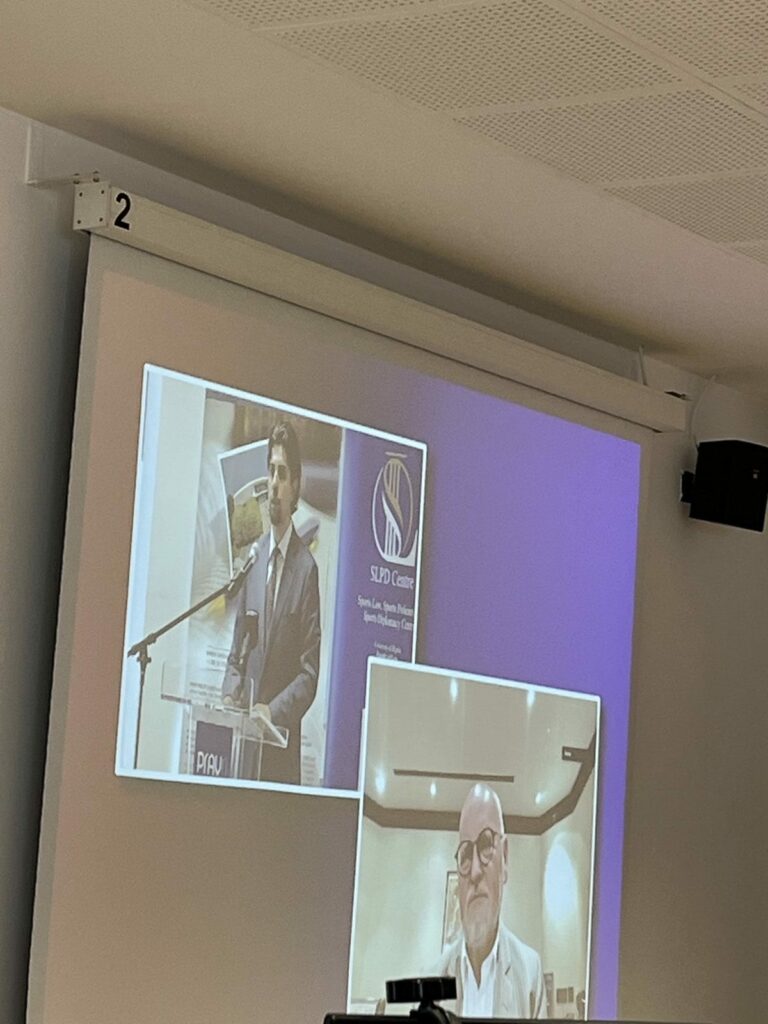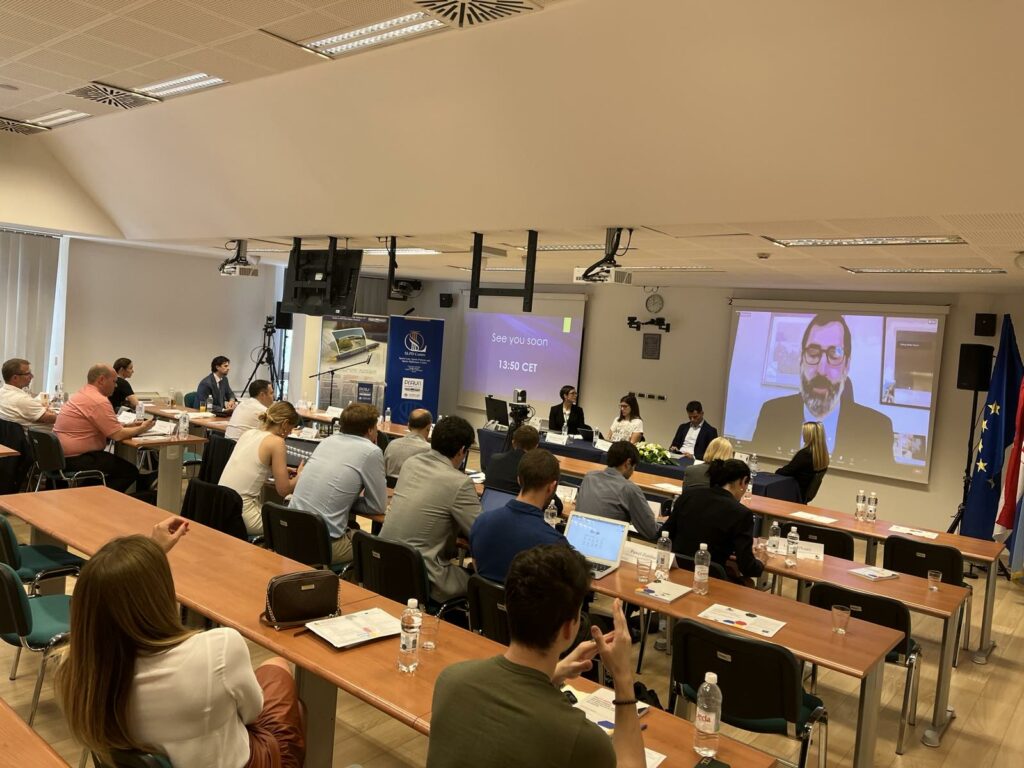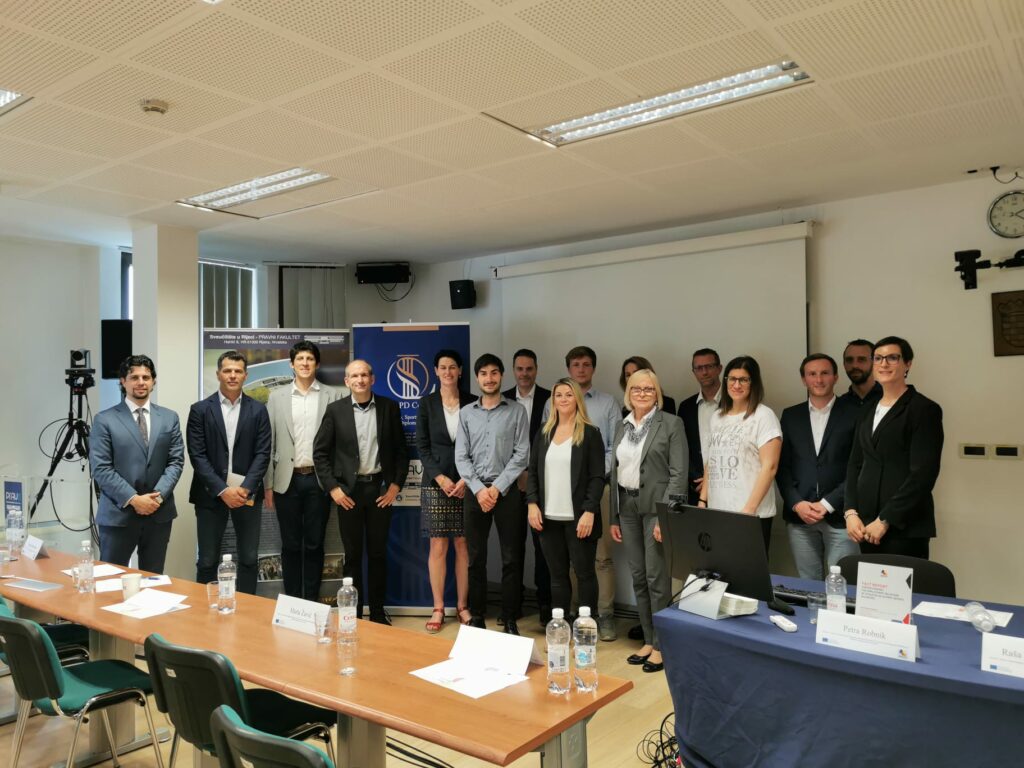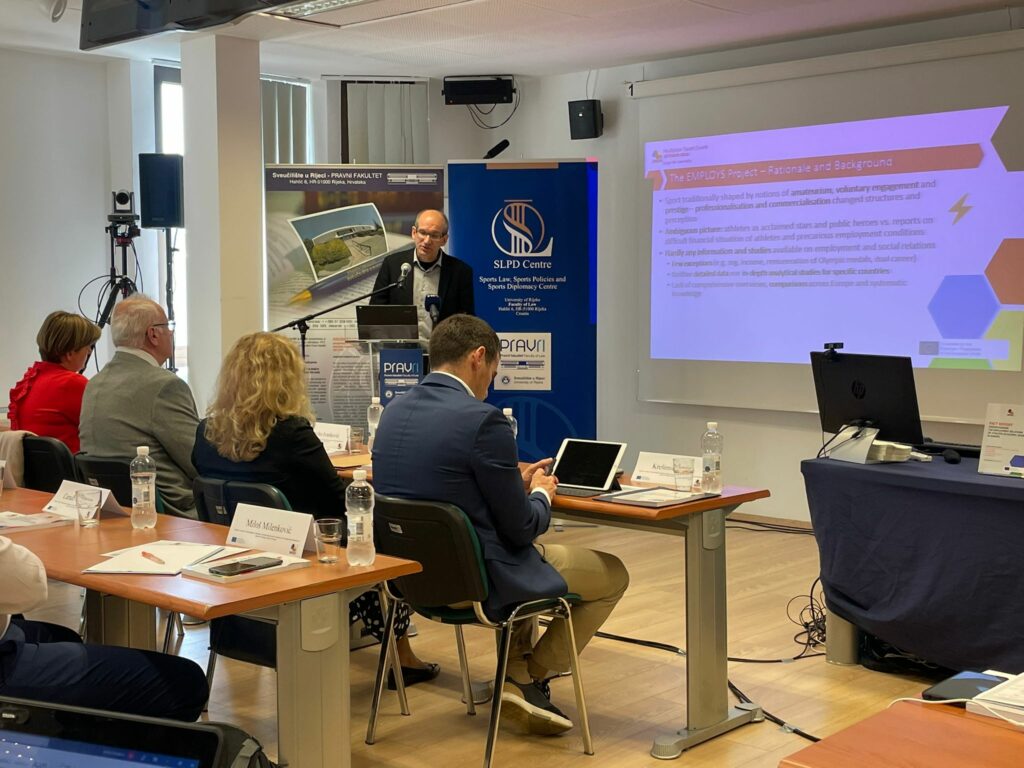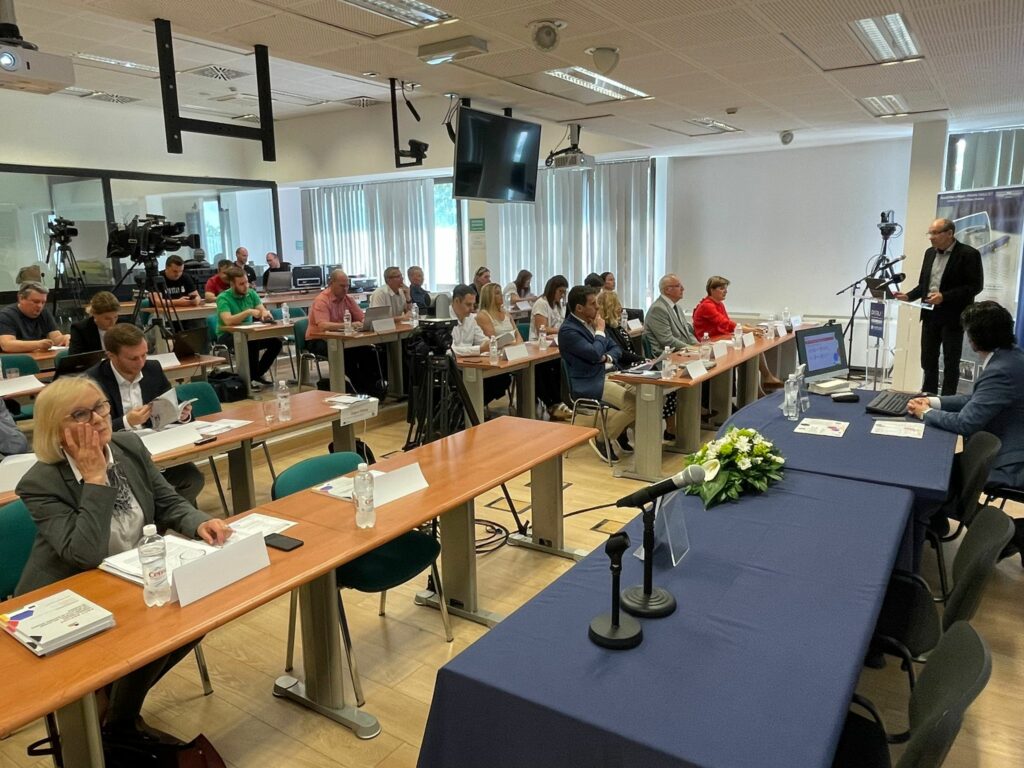The University of Rijeka, Faculty of Law and its Sports Law, Sports Policies and Sport Diplomacy Centre with its Head – Assoc. Prof. Vanja Smokvina was the host to key stakeholders who met in Rijeka (Croatia) on May 13, 2022 to debate on Good Governance in the Employment Relations of Elite Athletes in Olympic sports at the fourth conference of the EMPLOYS project. In recent months, the project team had developed a set of athlete-centered principles for good governance on employment relations, grouped into six dimensions, which were now presented and discussed in Rijeka. What improvements are required, what standards are beneficial, implementation of adequate and sustainable policies, and what mechanisms and activities need to be in place to improve good governance in athlete relations, formed the main questions explored in two panels and two keynote speeches.
Prof. Jürgen Mittag, Head of this Erasmus+ funded project, summarised: “There is a consensus [between the different actors], that athlete employment relations in sport are very important, but tensions prevail and might even increase soon. We are aware of this aspect because improvements have a financial impact and money is a scarce resource. As for the various stakeholders, they are ready to reflect on the ongoing debates, what might clarify positions, foster understanding, and eventually lead to incremental changes.”
After the first phase of the project, “(1) Understanding” with two conferences in Cologne (Germany) and Lisbon (Portugal), the Event in Rijeka as well as the conference in Liverpool (UK) focused on phase “(2) Evaluating” on the current practices of athlete employment with a focus on their governance. The final report at the end of 2022 within the third phase “(3) Improving” will include policy recommendations for key stakeholders to improve athlete employment practices.
On behalf of the Employs team, Maximilian Seltmann, Lorenz Fiege and Jürgen Mittag (Cologne Sports University, Germany) presented the current findings. Furthermore, at the Conference, the research team presented the state of findings of the project which resulted in the publication of the Fact Report published by the University of Rijeka, Faculty of Law together with the creation of the proposed Good Governance Principles.
The work of the project team was honored in the welcoming words of Professor Marta Žuvić (Vide-Rector of the University of Rijeka), Associate Professor Sandra Winkler (Vice-Dean of the Faculty of Law in Rijeka), Mr. Zdravko Ivanković (Head of the Department of Sports and Technical Culture the City of Rijeka) and dr. Krešimir Šamija (Director General of the Sport Unit at the Croatian Ministry of Tourism and Sport) officially opened the Conference since the Ministry of Tourism and Sport gave the auspices to the Event. Once again, the team welcomed a high-ranking European Olympic Committees Executive Board as keynote speaker, dr. Zlatko Mateša also holds the position of President of the Croatian Olympic Committee.
The first panel had the participation of dr. Krešimir Šamija (Ministry of Tourism and Sport of Croatia), Biserka Vrbek (NOC of Croatia), Miloš Milenković (NOC of Serbia), Borut Kolarič (NOC of Slovenia) and Rožle Prezelj (Sports Ombudsman of the Republic of Slovenia). The panel was chaired by dr. Leanne O’Leary (Edge Hill University, UK). Subsequently, the panelists discussed the situation in the South-Eastern European countries. Examples of good practices in each country have been highlighted and the Project’s outcomes were discussed.
After the break, Walter Palmer (Director of the Swiss Centre for Sport and Human Rights) gave a keynote speech and an introduction to the second panel in which, together with him, we had the participation of star athletes now athletes representatives: Blanka Vlašić (member of the Athletes’ Commission of the European Olympic Committees), Zoran Primorac (head of the Athletes’ Committee of the International Table Tennis Federation and former president of the Croatian Olympians Club), Caradh O’Donovan (Board member of the Global Athletes), Kaveh Mehrabi (Director of the Athletes’ Department of the International Olympic Committee), Petra Robnik & Raša Sraka Vuković (NOC of Slovenia Athletes’ Commission and Athletes’ Career Centre). The panel was chaired by Assoc. Prof. Vanja Smokvina (University of Rijeka, Faculty of Law, SLPD Centre). In the second panel, it was highlighted that the athletes’ representativity is of paramount importance, both in the bodies of the sport governing bodies and international, European or national level together with the athletes’ associations or trade unions. All the panelists said that during their career they felt their sporting activity was their job and that it is crucial to have financial support together with health insurance and protection career.
Based on the lively and intensive debates and contributions, it can be summarised that none of the stakeholders present fundamentally rejected the principles. In some cases, different perspectives and weightings are placed on the dimensions and principles. The NOCs have already voluntarily carried out a lot of activities with a high level of cooperation and consensus together with governments, clubs, and private stakeholders, whereas a strong focus is placed on dual-career and education programs. Also, it stressed the importance of a signed contract for athletes, the possibility of collective agreements wherever possible, and elementary labor and social security rights. Tensions have been identified between Athletes Commissions (of the NOCs) and other forms of athlete representation, partly with different positions but also with commonalities.
Implementing the expectations realistically seems to be another difficulty. To achieve this, an ongoing dialogue between the actors must be maintained. However, the actors are willing to undertake this for the good of the athletes.
Over the summer, stakeholders will be asked for extensive feedback on the good governance principles presented in Rijeka. Next up is the fifth conference in Warsaw in June and the final sixth conference in Brussels in October.
